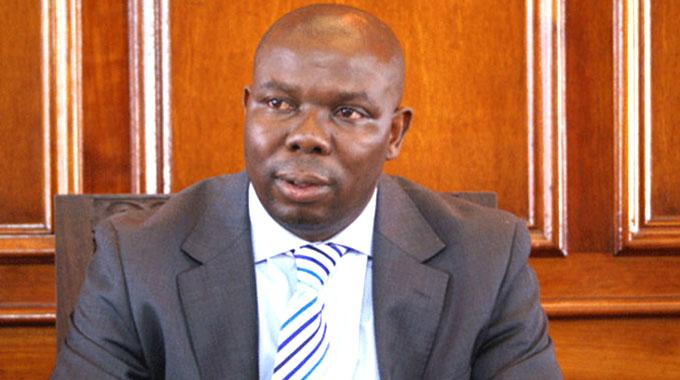Tugwi-Mukosi: A dream deferred?

George Maponga
Masvingo Bureau
One wintry morning in 1997, villagers in Gororo communal lands in Chivi, Masvingo South, woke up to a spectre of caterpillars, graders and front-end loaders felling trees, shoving and tossing huge boulders and ripping open mother earth’s belly with their iron fangs.
For the villagers the confluence of Tugwi and Mukosi rivers had, since time immemorial, been nothing, but a sign of nature’s exhaustless generosity and a geomorphological splendour. Nothing more.
But this day, the communal lands were agog with the news that a new dam was being built at the confluence to change their lives forever.
For Chivi, whose name is synonymous with drought-and is home to the proverbial old woman who, when faced with starvation, boiled stones and drank the broth — anything that beats drought is a huge honour.
News that Government was building Zimbabwe’s largest inland water body at the confluence ignited euphoric scenes and hysterical celebrations in Gororo and beyond.
The dam was billed to be an antidote of the gnawing hunger caused by perennial droughts.
Villagers across the length and breadth of Chivi started sharpening their plough sheers and readying themselves for irrigation that would eventually exorcise the ghosts of hunger and drought.
After a tortuous 17 year-construction journey, Gororo villagers in particular and the Chivi community in general, finally welcomed a new baby in May 2017, with Italian contractor Salini Impregilio having played midwife for the dam project that cost a whooping US$270 million, which was wholly financed by Government.
The pomp and fanfare in the wake of the dam’s commissioning was testimony that the Chivi folk fully embraced the project and were preparing to beat drums of an agricultural war predicated on a massive irrigation development project that would eventually help them wean-off the basket-case tag.
However, the flashing embers of hope and optimism that engulfed them three years ago are gradually dimming, plunging them into a world of despair over an initially promising agricultural renaissance and dream that seems to have been deferred.
The drums of hope have suddenly stopped and hopes of creating a greenbelt across the entire Chivi hinterland, using Tugwi-Mukosi which can irrigate more than 25 000 hectares when full, have been replaced by pessimism.
In officialdom circles, talk over failure to exploit the dam’s water revolves around delays in crafting the master plan, which will also include the irrigation master plan. An irrigation master plan is a prerequisite for irrigation development and officials say its absence is stalling use of Tugwi-Mukosi water to produce food.
Ward 2 Chivi Councillor Saunders Magwizi is unimpressed with talk that delays in coming up with a master plan was behind failure for people in the district to start benefiting from the water body.
To Cllr Magwizi, everyone hoped the country’s largest inland dam would be an elixir against perennial hunger.
“We were pinning our hopes on this dam, but it appears authorities did not have a plan beforehand of how they were going to use it to immediately benefit surrounding communities and the people of Chivi at large. We are now not sure whether we will be alive to experience the Tugwi-Mukosi dream.’’
He says even the much hyped fishing projects remained a pipe-dream for people in his area.
“We just hear that there are some fishing cooperatives that were licensed and allowed to fish commercially, but none of our people in Chivi is yet to benefit. We had hoped that by this time fields around the dam would be perennially green leading the fight against hunger, but up to now nothing has been done and we are losing hope,’’ he said.
Cllr Magwizi said delays to accrue benefits from Tugwi-Mukosi were also taking their toll on over 3 000 families at Chingwizi in Mwenezi, who were displaced from their ancestral homes in Chivi by the raging waters in the gargantuan water body.
“As things stand, it means some of the displaced families who left their fathers’ graves after relocation to Chingwizi, might never live long enough to witness the elusive Tugwi-Mukosi dream. Government says these families will be the first to benefit from the dam’s water through irrigation, but nobody knows when that will be and how many of the displaced people will still be alive.’’
Chivi Rural District Council chair Clr Godfrey Mukungunugwa said the people of Chivi were waiting with bated breath to start enjoying the benefits of the dam.
He said failure to take off of irrigation projects around Muzhwi and Bindamombe dams in the district, has now dampened fires of optimism that were burning when Tugwi-Mukosi was first commissioned.
“Our people are growing restless. They are not sure when the great Tugwi-Mukosi promise will come to pass. There are many opportunities that will be created by this dam in areas of agriculture and tourism, even in the area of nutrition through fishing that will also boost incomes but so far the impact has been minimal and not congruent to the earlier huge promise of this project.’’
Speaking on a recent tour of the dam, Minister of State Responsible for Implementation and Monitoring of Government programmes in the President’s Office Jorum Gumbo decried the presence of abundant, but idle water in Tugwi-Mukosi yet the nation was importing food.
“The dam is 40 percent full and the water can sustain crops on thousands of hectares through irrigation and I think there is need for a real push to make sure the master plan in question is completed so that locals and the nation at large start benefiting from this idle resource. We can’t be importing food when we have such a huge dam which is lying idle,’’ said Minister Gumbo.
Minister of State for Masvingo Provincial Affairs and Devolution Ezra Chadzamira said failure to start fully utilising the giant reservoir was the Achilles heel on the province’s development thrust in line with Vision 2030.
“We continue to implore authorities to make sure the master plan which is stalling full utilisation of the dam is finally completed. We don’t know why the master plan in question is taking long to complete.
“We could even do with focusing on low hanging projects at the dam that are not affected by absence of the master plan. Our people have waited for too long to start benefiting from this dam.’’
Tugwi-Mukosi was touted as a game-changer for Masvingo with its influence straddling key sectors such as tourism and agriculture, which traditionally have been key cornerstones of the national economy.
Optimists said a mega-park that would be an entry window for tourists would be quickly created around Tugwi-Mukosi and stocked with the Big Five wild animals and other game trans-located from overpopulated habitats.
A conurbation stretching from Chiredzi to the east and Rutenga to the west was also envisaged with proponents of the idea premising their belief on a host of agri-processing companies and financial institutions that were expected to flock to the Lowveld when Tugwi-Mukosi water started to irrigate swathes of fertile land under crops that included cereals and other cash crops.
Masvingo provincial development coordinator Mr Fungai Mbetsa said Government was working on the master plan for Tugwi-Mukosi. Current focus was on low hanging projects among them a planned 15MW mini-hydro power plant, a dry harbour, navigation masts and fisheries with leading fish breeding firms have already established breeding cages in the dam.
However, of concern to many is that the anticipated emergence of a vibrant fisheries industry, after Government seeded over 25 000 fingerlings under the Command Fisheries programme more than three years ago, has not attained the targeted decibels in terms of acclaim and benefits to locals.
The planned hydro power station has also not taken-off ostensibly over lack of funding despite a power house to accommodate the plant having been built under the main dam construction contract with Salini Impregilo.
Work on the dry harbour and the planned tarring of the road to the facility has also not started, also owing to lack of funds and all this stillbirth has left Tugwi-Mukosi largely a white elephant and a deferred dream to the locals.
Recent news announced by Minister of Higher and Tertiary Education, Science and Technology Development Minister Professor Amon Murwira that local State-run universities would aid Government in crafting the master plan were met with enthusiasm in some circles.
But the Covid-19 pandemic and other pressing challenges, the universities have not yet got into gear in drawing the master plan, leaving yet another big hole that threatens speedy drafting of the master plan to make sure the dam finally benefits those waiting in the wings.
For now, to the people of Gororo and the Chivi hinterland in general, the Tugwi-Mukosi dream appears to have been temporarily deferred.








Comments